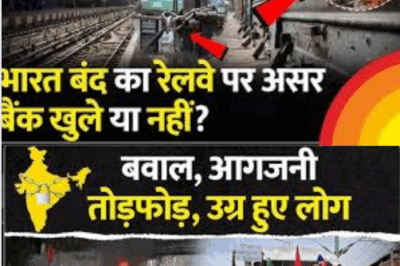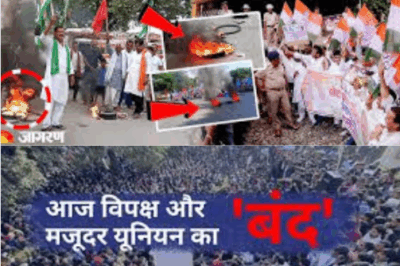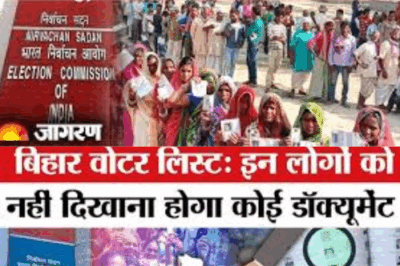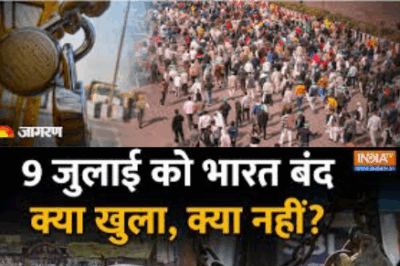Chhangur Baba News Updates: Who is Chhangur Baba? Did CM Yogi run the bulldozer?
In the early hours of July 9, 2025, the quiet village of Madhpur in Uttar Pradesh’s Balrampur district echoed with the roar of bulldozers. Under the directives of Chief Minister Yogi Adityanath’s administration, authorities demolished a palatial ₹3 crore mansion belonging to Jamaluddin—a self-styled spiritual leader better known as Chhangu Baba. The demolition marked the climax of a months-long investigation into one of India’s most brazen alleged conversion rackets, exposing a labyrinthine network of coercion, caste-based exploitation, and foreign funding that has sent shockwaves through the nation’s political and religious landscape.
The Rise and Fall of Chhangu Baba: From “Haji Pir” to Prison
Jamaluddin, 52, cultivated an aura of mysticism as Haji Pir Jamaluddin Baba, operating primarily from Uroola town in Balrampur. Over two decades, he built a loyal following among marginalized communities, positioning himself as a benefactor to the poor. However, police investigations reveal a darker narrative. Chhangu Baba allegedly exploited this trust to run a sophisticated conversion syndicate, targeting vulnerable Hindu girls and laborers with promises of financial aid, marriage prospects, or threats of legal harassment.
His modus operandi involved a chilling caste hierarchy:
Upper-caste girls (Brahmin, Kshatriya, Sikh): Offered ₹15 lakh to ₹1 crore for conversion
OBC communities: ₹10–12 lakh
Lower-income groups: ₹8–10 lakh
Authorities uncovered 40–50 bank accounts linked to his network, tracing ₹100 crore in transactions primarily from Gulf nations and Pakistan. Jamaluddin’s frequent travels to Islamic countries—40–50 trips over 15 years—facilitated these inflows, funding his lavish lifestyle, including luxury cars, a Balrampur showroom, and the now-demolished Madhpur mansion.
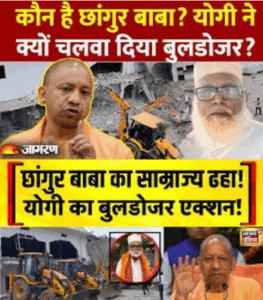
The Conversion Playbook: Coercion, Deception, and Institutional Manipulation
The Uttar Pradesh Anti-Terrorism Squad (ATS), which spearheaded the probe, detailed a multi-layered operation:
-
Recruitment: Agents like Neetu Rohra (alias Nasreen) identified targets—often families facing economic distress or legal troubles.
Inducement: Offers included cash, job opportunities abroad, or protection from fabricated criminal cases.
Legal Coercion: Those resisting faced false charges. One victim, a Dalit laborer, recounted: “They filed a theft case against my son. The police, influenced by Baba’s men, said it’d disappear if I converted.”
Document Fraud: Forced converts received forged identity papers, erasing their Hindu lineage.
The ATS also exposed a “marriage bureau” fronting the operation, where converted girls were wedded to men in Gulf countries—a pipeline allegedly funnelling human trafficking under religious guise.
Global Connections: The Foreign Funding Web
Financial trails paint a geopolitical picture. Over 70% of Chhangu Baba’s funds originated from:
Qatar and UAE: Donations masked as charity through hawala networks
Pakistan: Intermediaries in Karachi and Lahore routed money via shell companies
Oman: A Muscat-based NGO, “Al-Ihsan Trust,” flagged for financing radical groups
Intelligence reports suggest these funds also supported anti-India propaganda. A seized ledger listed payments to social media influencers promoting “Hindu oppression” narratives in Europe.
Yogi’s Bulldozer Politics: Symbolism and Strategy
The demolition of Chhangu Baba’s properties aligns with the Adityanath government’s broader crackdown on illegal conversions—a key BJP plank since passing the Uttar Pradesh Prohibition of Unlawful Conversion of Religion Act in 2021. Over 120 conversion-related cases have been filed since 2022, but critics argue the bulldozer-driven approach risks conflating criminal activity with communal targeting.
“This isn’t about religion; it’s about organized crime exploiting faith,” stated Balrampur SSP Rajesh Kumar. Yet, the visuals of Hindu laborers cheering as bulldozers razed a Muslim preacher’s home have polarized public opinion. Opposition leaders like Akhilesh Yadav condemned the act as “theatrics diverting from unemployment crises.”

The Network’s Reach: From Gulf Ghettos to Indian Heartlands
Chhangu Baba’s tentacles extended beyond Uttar Pradesh:
Kerala: Links to a Kochi-based fishing export firm laundering Gulf money
West Bengal: A Kolkata madrasa accused of housing converted girls before trafficking
Delhi: A Rohini-based charity, “Seva Bharati,” funneling funds to 12 states
Interrogations revealed plans to expand into northeastern states, leveraging tribal poverty and Christian missionary tensions.
Legal Labyrinth and Political Repercussions
Chhangu Baba and 13 associates face charges under:
Sections 153A (promoting enmity), 295A (outraging religious feelings) of IPC
UP Conversion Act’s Section 5 (forced conversions)
Prevention of Money Laundering Act (PMLA)
The case has ignited debates on surveillance. Home Ministry data shows a 300% spike in conversion-related FIRs since 2022, but convictions remain below 5%. Legal experts attribute this to shoddy evidence—a pitfall the ATS aims to avoid with digital forensics, including encrypted WhatsApp chats detailing transactions.
Politically, the BJP seeks to consolidate Hindu votes ahead of 2027 state elections. However, Muslim groups warn of backlash. “Targeting criminals is fine, but don’t brand all madrasas as suspect,” cautioned All India Muslim Personal Law Board’s Khalid Rasheed.

The Human Cost: Voices from the Ground
Behind the headlines lie shattered lives:
Rekha (name changed), 19: Lured with nursing job in Saudi, forced to convert, and married off to a Qatari man. Rescued in 2024.
Manoj Tiwari, daily wage worker: “Took ₹50,000 during COVID, now ostracized by my community as musalman.”
Neetu Rohra: Former Hindu nurse turned key operative, motivated by debts and threats.
Social workers report a surge in interfaith tensions. In Uroola, Hindu families now vet grooms via caste certificates, while Muslims fear retaliatory boycotts.
The Road Ahead: Vigilance vs. Vigilantism
As Chhangu Baba’s trial begins, India confronts existential questions:
-
Regulation: Calls grow for a national database of NGOs and stricter foreign donation laws.
Rehabilitation: States debate deradicalization programs for forced converts.
Communal Harmony: Initiatives like interfaith councils gain urgency to prevent fractures.
The case also tests India’s diplomatic ties. With Qatar demanding “transparency” in probes involving its nationals, the MEA walks a tightrope between justice and geopolitical pragmatism.
Epilogue: A Nation’s Soul in the Balance
The rubble of Chhangu Baba’s mansion symbolizes more than a criminal enterprise’s collapse. It mirrors India’s struggle to reconcile pluralism with predatory extremism. As Yogi Adityanath vows to “bulldoze every anti-India plot,” and activists warn of minority stigmatization, the path forward demands nuance—where justice isn’t blinded by bulldozers, and faith isn’t weaponized into fear. In this delicate dance between law and identity, India’s soul hangs in the balance.
Play video :
News
Gujarat Bridge Collapse: The bridge connecting Vadodara-Anand collapsed, scary pictures of Gujarat bridge accident
Gujarat Bridge Collapse: The bridge connecting Vadodara-Anand collapsed, scary pictures of Gujarat bridge accident Life often offers us a single…
Bharat Bandh Update: Indian Railways, Schools, Banks Closed during Bharat Bandh?
Bharat Bandh Update: Indian Railways, Schools, Banks Closed during Bharat Bandh? On July 9, 2025, India witnessed one of its…
Bihar Bandh: Trains were stopped, tyres were burnt. Effect of Mahagathbandhan’s Bihar Bandh
Bihar Bandh: Trains were stopped, tyres were burnt. Effect of Mahagathbandhan’s Bihar Bandh On a day charged with tension and…
Bihar Election Update: Voter’s List! EC’s big decision, what to do if you don’t have the document?
Bihar Election Update: Voter’s List! EC’s big decision, what to do if you don’t have the document? As Bihar heads…
Ration Card Update 2025: New rule regarding ration card, these people will not get ration
Ration Card Update 2025: New rule regarding ration card, these people will not get ration The Indian government’s stringent e-KYC…
9th July Bharat Band: Bharat Bandh will happen on 9th July! What will be open, what will remain closed?
9th July Bharat Band: Bharat Bandh will happen on 9th July! What will be open, what will remain closed? On…
End of content
No more pages to load


